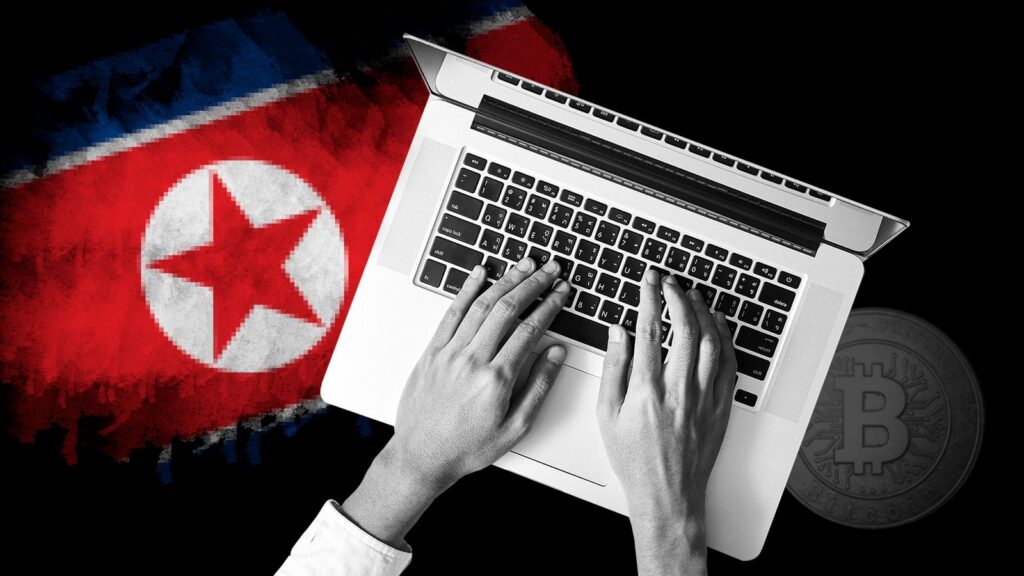North Korean Hackers Allegedly Siphon Hundreds of Millions in Crypto to Fund Nuclear Programs
By James Pebenito • September 6, 2023
North Korean Hackers Allegedly Siphon Hundreds of Millions in Crypto to Fund Nuclear Programs
In a worrying development, it has been revealed that hackers with ties to North Korea stole Bitcoin valued at $200 million between January and August 18, 2023. According to recent research by TRM Labs, this astounding amount represents more than 20% of all cryptocurrency stolen globally this year. Experts’ suspicion that these illegally obtained digital assets are being used to fund North Korea’s nuclear weapons ambitions is even more unsettling.

The Increase in North Korean Cyberattacks Is an Unsettling Trend
The ability of North Korea to wage cyberwar has become a source of increasing concern for the international community. A slew of high-profile cyberattacks targeting everything from financial institutions to cryptocurrency exchanges have been connected to the hermit nation over the years. The regime now heavily relies on these operations to generate illicit cash, which helps it get beyond the strict economic sanctions the United Nations (U.N.) has put in place.
The TRM Labs research provides information on the scope of North Korea’s cryptocurrency theft activities. The hackers of the government are thought to have stolen a sizable chunk of the total amount of cryptocurrencies just this year.
Using cryptocurrency as a source of income
Long believed by experts, that North Korea was using cryptocurrency theft to get over financial restrictions and fund its nuclear ambitions. These concerns appear to be confirmed by a recent report from TRM Labs and information from the crypto research firm Chainalysis.
According to Chainalysis, “most experts concur that the North Korean government is using these stolen assets to fund its nuclear weapons programs.” This claim emphasizes how serious the issue is since nuclear weapons projects seriously endanger both regional and global stability.
United Nations Sanctions: The Fight to Halt North Korea’s Ambitions
In order to prevent North Korea from gaining access to the financial resources needed to progress its nuclear activities, the UN has placed a number of sanctions on the country. These sanctions have targeted a number of the regime’s sources of income, including financial transactions, oil purchases, and the export and import of coal.
However, North Korea has been able to get around some of these limitations because of its quick and adaptable use of the internet. Due to its decentralized nature and difficulty in being tracked, cryptocurrencies have given the dictatorship a practical way to raise money for its illegal nuclear activities.
The Worldwide Reaction
Responding to North Korea’s cyber activities presents a daunting challenge for the international community. In addition to allowing the regime to ignore sanctions, the theft of cryptocurrencies also poses a larger threat to the stability and security of the online financial environment.
Increased cybersecurity measures, intelligence cooperation among states, and, when practical, asset monitoring and seizure have all been used to combat these actions. However, the elusiveness of cryptocurrencies and North Korea’s tenacity have made it a never-ending conflict.
The Future Route
The alleged theft of hundreds of millions of dollars worth of Bitcoin by North Korean hackers to pay for their nuclear projects serves as a harsh warning of the changing dangers in the digital era. The difficulty that North Korea presents for the international community highlights the need for continual attention, collaboration, and the creation of creative countermeasures.
Strong cybersecurity measures are necessary to address the problem, but so are global diplomatic efforts to find a peaceful solution to the North Korean nuclear situation. The future of international security is at stake, and everyone is eagerly observing how these events play out.


